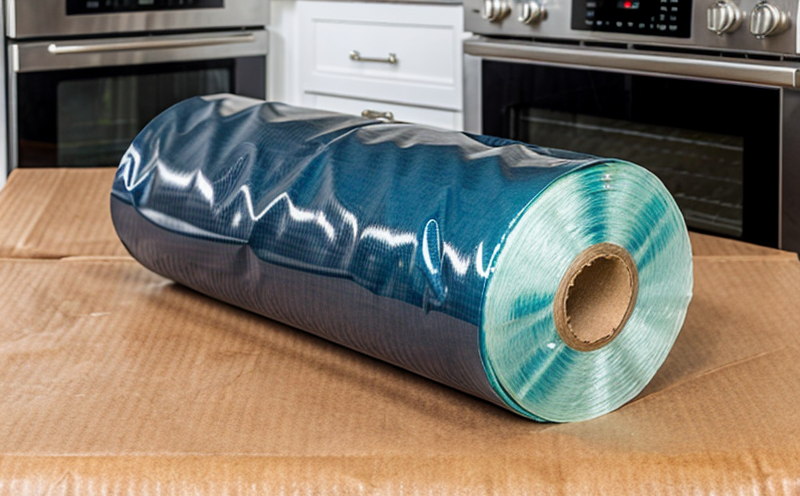DIN EN ISO 11357 DSC Thermal Analysis of Plastic Wraps
The DIN EN ISO 11357 standard specifies the method for determining the thermal properties of plastic materials using Differential Scanning Calorimetry (DSC). This technique is particularly crucial in assessing the performance and stability of plastic wraps used in household applications. Understanding the thermal behavior of these plastics helps ensure that they meet stringent quality standards, are reliable under various environmental conditions, and can withstand typical usage without degradation.
The test involves measuring the heat flow to a sample as it is heated or cooled at a controlled rate. By comparing this data to an empty reference material (usually alumina), one can determine important characteristics such as glass transition temperature (Tg), melting point, and crystallization temperature. These parameters are critical for predicting how plastic wraps will perform in real-world conditions.
The process begins with carefully selecting the appropriate test specimens that accurately represent the product’s composition. Specimen preparation includes ensuring uniformity through precise cutting techniques to avoid edge effects which could skew results. The samples must then be weighed accurately and placed into crucibles, which are inserted into the DSC instrument.
The thermal analysis is conducted under controlled conditions, typically in a nitrogen atmosphere at specified temperature ranges depending on the specific plastic type being analyzed. Data collected includes baseline heating curves, cooling curves, and endothermal or exothermic events corresponding to phase transitions within the material. Post-test analyses involve interpreting these data points against established thresholds defined by ISO 11357.
| Industry Application | Description |
|---|---|
| Household Plastics | Determining the thermal stability of wraps used in food storage or packaging. |
| Medical Packaging | Evaluating the integrity and safety of medical devices wrapped in plastic. |
| Construction Materials | Analyzing insulating materials used to enhance energy efficiency. |
Scope and Methodology
The DIN EN ISO 11357 standard covers the thermal analysis of thermoplastics, semi-crystalline polymers, amorphous materials, and mixtures thereof. The scope includes both virgin resins and recycled plastics but excludes foams or laminates where other specific methods apply.
The method involves heating and cooling a small sample of plastic at controlled rates while monitoring the heat flow. This allows for precise measurement of thermal events such as glass transition, melting points, crystallization temperatures, and enthalpies associated with each event. The process is conducted under specified conditions to minimize external variables that could affect results.
For accurate testing, it’s essential to follow detailed procedural instructions outlined in the standard. This includes selecting appropriate heating/cooling rates based on material type, ensuring proper sample preparation, and maintaining consistent environmental controls during analysis.
Benefits
- Predicts the service life of plastic wraps in diverse environments.
- Aids in optimizing formulations for improved performance and durability.
- Ensures compliance with international standards, enhancing product reliability.
- Supports R&D efforts aimed at developing new materials with enhanced thermal properties.
Industry Applications
- Food Packaging: Ensuring wraps maintain integrity and safety during storage.
- Medical Devices: Verifying the suitability of wraps for sterile packaging.
- Building Insulation: Assessing the thermal efficiency of insulating materials.





